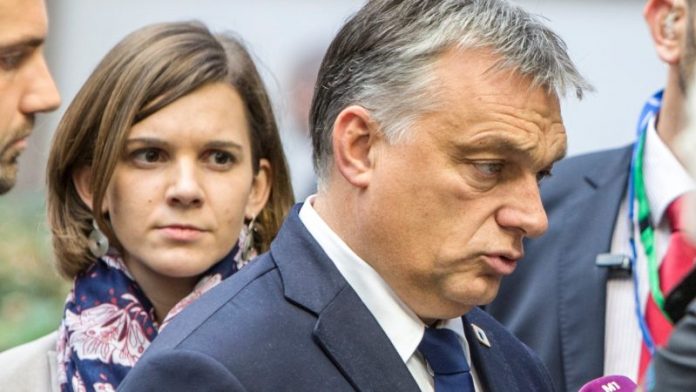The sweeping victory of Viktor Orbán’s increasingly nativist and authoritarian Fidesz in the recent Hungarian elections has sparked both international outcry and a renewed focus on the politics of the central European country. This new-found interest in Hungarian politics reflects Orbán’s position as an exemplar of the kind of illiberal populism sweeping many Western countries. The media saturation and anti-migrant narratives of Fidesz invite comparisons to the likes of Trump, while the corruption and attacks on civil society call to mind Vladimir Putin’s no-holds-barred approach to domestic politics. Hungary’s political discourse seems to have borrowed the post-fact rhetoric of Trump’s Republican Party, while the American right have latched onto Orbán’s anti-Semitic campaign against George Soros and amplified it. Protests against the Hungarian government’s attacks on democratic norms are unlikely to stop in Budapest, one of the few parts of the country not electorally dominated by Fidesz. However, despite OSCE condemnation of how the election was conducted, Hungary is unlikely to bow to international pressure. This is because domestically, Orbán is in a win-win position.
The EU, of which Hungary is a member, has been a consistent punching bag for Orbán, particularly over the issues of migration and multiculturalism. However, the EU is also the only institution with a realistic ability to constrain and deter the Hungarian government from further attacks on democratic institutions. Hungary’s economy is incredibly reliant on the EU, with membership driving most of the country’s impressive growth. Most Hungarians support continued membership of the EU, despite the government’s heated rhetoric. Recognizing this, many believe that EU intervention is the best route for the maintenance of democracy, particularly given the EU’s stated commitment to liberal democratic values. The rector of the Central European University, an institution whose existence has been threatened by the government, even made a direct appeal to the European Parliament. There are several routes which the EU could take in order to deter Orbán, with the threat of Article 7 proceedings having been suggested. The use of this mechanism would strip Hungary of its voting rights in the EU, a powerful deterrent which has led to compromise with Poland’s similarly illiberal government. However, despite the EU’s economic and political leverage, this is unlikely to be the route to the salvation of Hungary’s democracy in the short to medium term.
Orbán, emboldened by his party’s electoral dominance, is neither domestically or internationally isolated enough to bow to EU pressure. The central European Visegrád Group represents a strong alliance of countries, all of which have right-wing governments with similar positions on migration and integration. Hungary has shown a willingness to use its veto vote in the EU to block punitive measures against Poland, a move which would certainly be reciprocated. Given the need for EU consensus over punitive action, the Visegrád voting bloc holds an effective veto over the Commission. So, while many MEPs might harshly condemn Orbán, without action in the Commission this is largely symbolic grandstanding. That said, it is in the European Parliament that the next level of conflict lies.
Fidesz is a member of the European People’s Party, a center-right group which nevertheless maintains a commitment to the EU and liberal institutions. At a recent CEU roundtable on the Hungarian elections, the issue of the EPP’s position towards Fidesz was brought up repeatedly, reflecting the possibility that expulsion or censure from the EPP may be more forthcoming than action from the EU itself. This fits with the growing pressure on the EPP to act, coming from both other parties, EPP insiders and other branches of the EU bureaucracy. However, despite Orbán being summoned to a crunch meeting with the EPP on May 2nd, this is unlikely to deter the Hungarian government from continuing their crackdown on civil society and democratic norms. Indeed, Orbán has faced such symbolic censure from the EPP leadership in the past without being impelled to change course. This is because, no matter how severely either the EPP or EU reacts, they can only serve to strengthen Orbán’s populist narrative.
Viktor Orbán has skillfully positioned himself as a champion of Hungary’s interests against the overbearing EU and liberal orthodoxy. The construction of a conspiracy-driven narrative, comprising of shadowy bankers like George Soros and untrustworthy foreign media, means that any rhetorical or legal attack on Hungary’s government can be recast as an attack on the Hungarian people. The very objects of Orbán’s reforms are those institutions which could potentially constrain him, such as the free press and independent universities. This means that attempts by organizations to defend themselves risk appearing self-interested rather than principled. Combined with Fidesz’s supermajority in Parliament, any attempt by the EU to impose sanctions would simply seem like a way of punishing the Hungarian people for democratically electing a government which defends their interests. This same logic applies to the EPP, which can either help Orbán by continuing to provide the cloak of legitimacy or can help him by expelling him and creating a sense of political martyrdom. This powerful narrative, combined with Western Europe’s economic interests in Hungary, puts Orbán in a strong position to resist foreign pressure.
The Fidesz government, quite correctly, calculates that the desire of European companies to profit from Hungary’s continued membership of the EU will temper the actions of foreign governments and European institutions. German corporations are particularly well served, using Hungary as a site of cheap but highly educated labor while receiving large state subsidies. There have also been accusations that multinational corporations deliberately sell inferior products on Eastern European markets, fueling bitterness and distrust of foreign companies. Many in Hungary their relationship to the EU as a quid pro quo, in which European companies exploit Hungary’s emerging market while Hungary reaps the economic benefits of European development projects. Hungary’s relationship to the EU is therefore based on economics rather than a shared commitment to liberal values, creating a fundamental tension. This bears some similarity to the UK’s relationship with the EU, in which there was a conflict between the UK’s image of the EU as a trading bloc and the deeper European commitment to an ever closer union. For Orbán, the mutually beneficial economic relationship between Hungary and the rest of Europe strengthens his hand in transgressing against European liberal norms.
Viktor Orbán’s position is stronger than it has ever been in Hungary, with opposition media shutting down and the opposition parties in disarray. The Open Society Foundation, one of Hungarian NGO’s largest sources of funding, has announced that it will relocate to Berlin while CEU is opening an alternative campus in Vienna. This suggests a new stage in Fidesz’s campaign against civil society, as some of the most prominent targets signal a retreat. The only outside institution with the leverage to change the course of Hungary’s democratic backslide is the EU, which is unable to act without fueling the populist backlash against the European project. While political conflict will continue, both within Hungary and with the EU, Orbán’s government currently holds all the cards.

Daniel Odin Shaw is a Scotland-based scholar working on post-conflict peacebuilding dynamics. He also focuses on political violence, non-state actors, security governance, gender and territorial politics.


